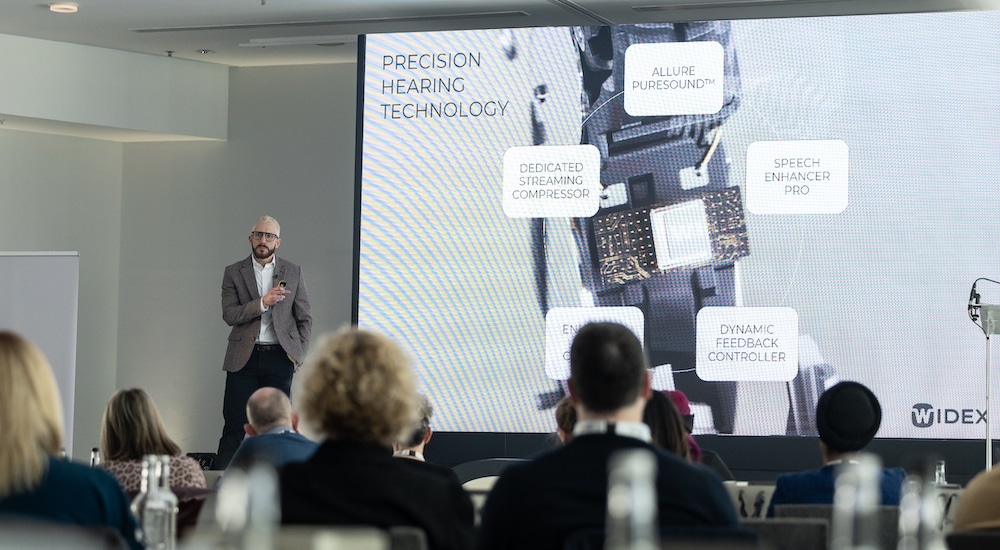UK audiology community mulls proposals for primary care change at House of Commons campaign launch
Hosted by Labour MP Yasmin Qureshi, the November 5 event organised by Specsavers drew representatives from all areas within hearing care, bringing media focus on hearing loss and the issue of how to best deliver treatment and solutions.
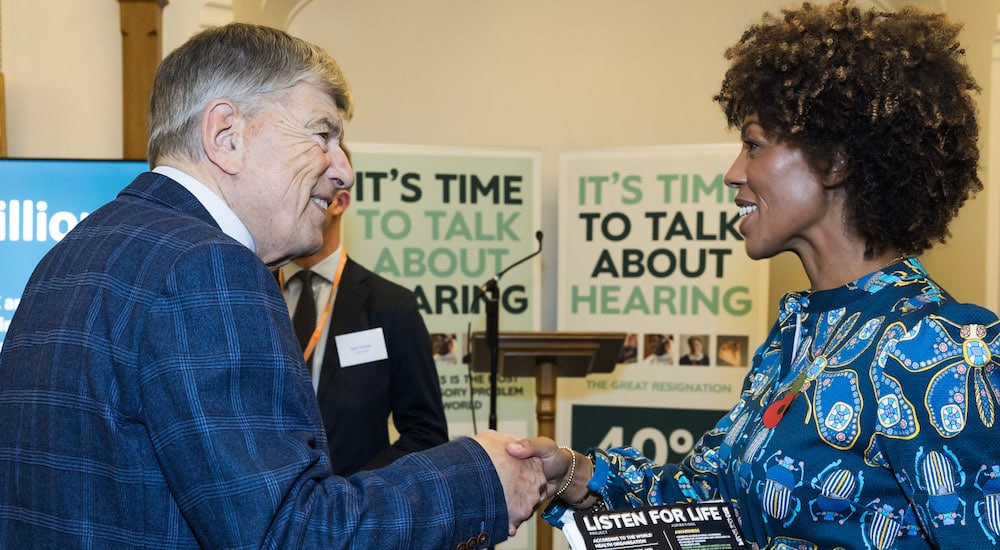
Noise in the right place. As a party game clue, the sentence might help identify the purpose of audiology, both the profession and industry.
Hardly could Specsavers, the high street eye and hearing care chain, have chosen a better place than the House of Commons to make a noise about its proposals for a fundamental change in how hearing care begins for UK citizens, a move to a primary care model embracing businesses in the independent sector, whose professional providers would, if the changes came, fit people with hearing aids under the auspices of the National Health Service as part of a fully mandated primary care community audiology service which the Specsavers folk claim the independent sector has the capacity to fulfil across the UK.
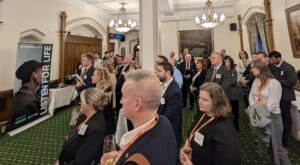
PW
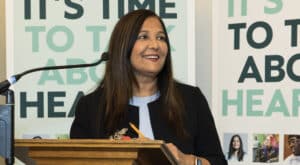
Gary Schwartz/Specsavers
Yasmin Qureshi, MP
Hosted in the Churchill Room of the House of Commons by Labour MP Yasmin Qureshi, the November 5 event organised by Specsavers pulled a good crowd. Representatives of the profession, industry, and hearing research gathered in force alongside a confirmed 25 MPs and peers to hear what the campaign talk is now that It’s Time to Talk About Hearing (the title of the Specsavers campaign under discussion).
During a short hour of speeches, and an hour of mingling, munching, and sipping (while the media sampled noises for processing), the mood was upbeat, and curiosity high. As one industry leader commented to Audiology Worldnews at the event, there were “a great variety of stakeholders” present. And while it would not be fair to assess the strong audience as wholly sold on the proposed changes, there was definitely interest, and there were certainly nods of agreement that patients with hearing loss need a better service than they are currently receiving from the NHS, whose waiting lists and postcode lottery were firmly underlined by those presenting: Yasmin Qureshi, MP (Labour) for Bolton South and Walkden; TV doctor, Zoe Williams, GP; Jess Brown-Fuller, MP for Chichester and Liberal Democrat Spokesperson on Hospitals and Primary Care; Carina Hummel, MD of Audiology for Specsavers; and founder and Chairman of Specsavers, Doug Perkins.
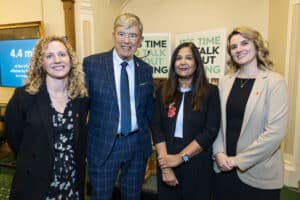
Gary Schwartz/Specsavers
L to R, Carina Hummel, Specsavers audiology MD; Doug Perkins, Chairman Specsavers; and MPs Yasmin Qureshi and Jess Brown-Fuller.
The organisers and those supporting the campaign beyond the Specsavers fold are realistically aware that the proposed shift in the primary care model must ultimately find political enthusiasm from the UK Government. With only a few faux Gothic walls and well-worn corridors to transcend with the wordy noise at their Guy Fawkes Day launch, Specsavers surely chose a right place for such messaging; in principle, MPs didn’t have far to walk from the Chamber where, just a couple of hours earlier, the Secretary of State for Health and Social Care, Wes Streeting, had told the house that prior to the recent budget, the NHS “was crying out for change”. When the cabinet member will bring up specifics on audiology in the House remains to be seen.
But the proposed changes are still being debated by the UK audiology community. On November 5, strong voices aired firm arguments and had listeners. However, the voices behind the campaign – hear them in the video above and watch this space for interview videos from the November 5 event – are in no doubt that their objectives will not be served by short-termism. Moving audiology to a model that optics has used for many decades, a model that Specsavers Chairman Doug Perkins says made a “pretty well perfect” difference to the NHS, is not happening overnight, and it will require carefully managed collaboration at many levels.

The noise made by Specsavers on behalf of the patient, however, and to boost awareness on hearing loss and push for hearing devices to be made “cool” – the latter message immediately picked up by the mainstream national media. – will hopefully go some way to tackling stigma about wearing hearing aids and having hearing loss treated. That presumably means a win-win scenario for the campaign. If it is Time to Talk About Hearing, the least people can do is talk about it.
Editor-in-chief, Peter Wix


